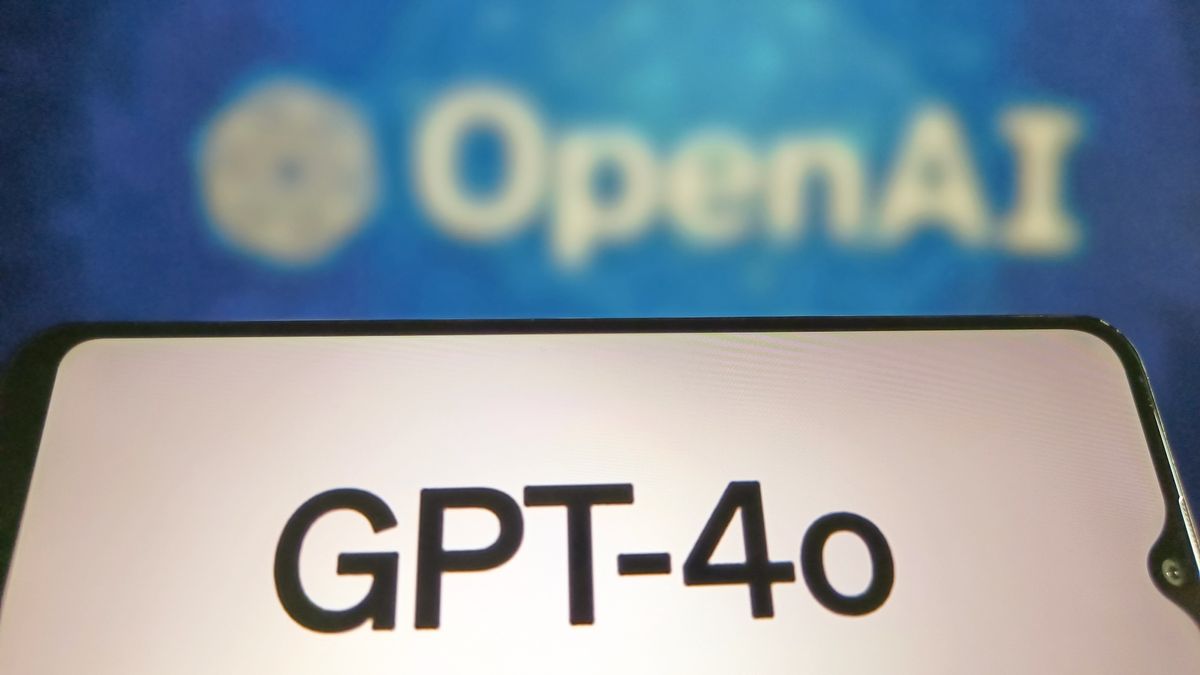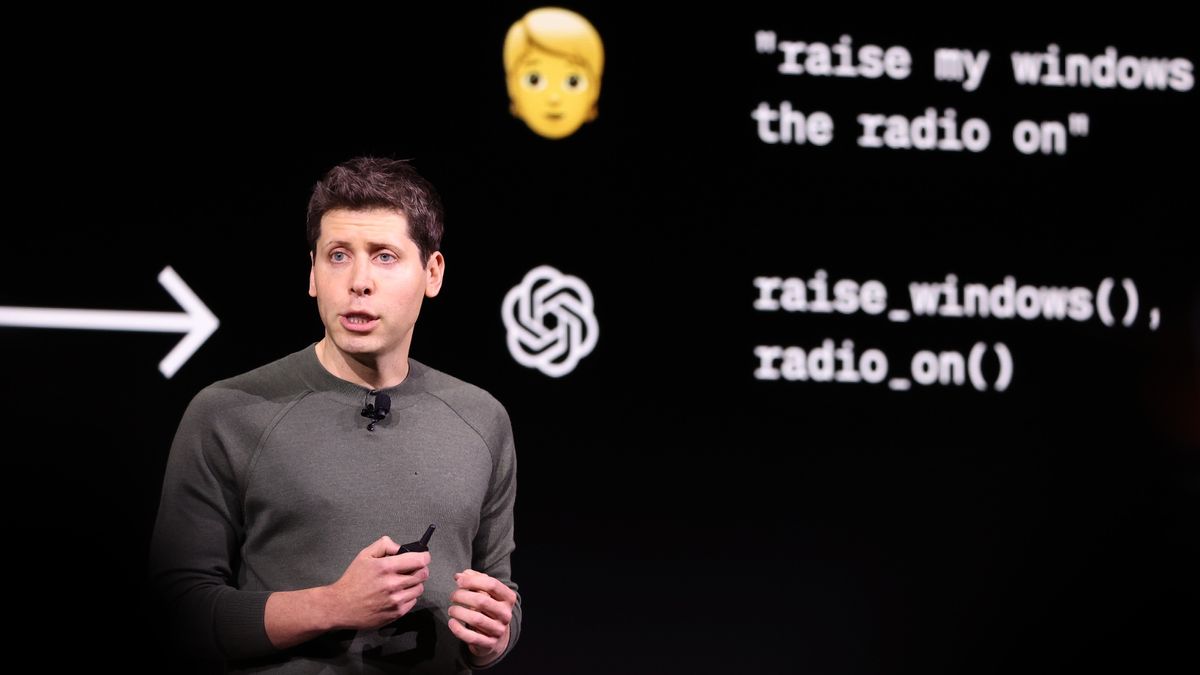- AIdeations
- Posts
- AI Narration for Olympics, MoneyLion's Trends, and Ethical AI: Today's Insights
AI Narration for Olympics, MoneyLion's Trends, and Ethical AI: Today's Insights
Discover AI's role in Olympic coverage, the latest travel trends, and ethical concerns in AI.


Aideations: Your Quick Guide to Today's Top Stories, Tools, Tutorials, Research, and More! Here's what you need to know today in the world of AI and tech. From AI narrating the Olympics to travel trends and ethical AI dilemmas, let's dive in!
🧠 Top Stories & Opinions
Al Michaels’ AI Voice to Narrate Summer Olympics Coverage on Peacock
MoneyLion 2024 Travel and AI Trends Report - Key Insights
Perplexity's Grand Theft AI: A Deep Dive into Ethical Concerns and Counterarguments
AI Could Make Talking to Animals a Reality
🔍 News from the Front Lines
Solos unveils AirGo Vision, the world's first smart glasses with GPT-4o
The music industry’s AI fight
GPT-4o advanced voice 'accidentally' leaked out to some users — here's what happened
Claude Artifacts is the greatest innovation in AI this year — 5 prompts to try it now
📚 Tutorial of the Day
15 Use Cases for Claude 3.5 Sonnet
🎥 Video of the Day
Lion King Director Rob Minkoff Shares Thoughts on AI
⚙️ Tools of the Day
Orby
Dust
Zing Coach
Decagon
Sider
Reclaim
📚 Research of the Day
SEAKR: Self-aware Knowledge Retrieval for Adaptive Retrieval-Augmented Generation
💡 Prompt of the Day
Pick a High-level Marketing Strategy
🐦 Tweet of the Day
Sambhav Gupta shares insights on ChatGPT’s upgraded voice feature.
Stay informed and ahead of the curve with Aideations. See you tomorrow for more insights and innovations! 🚀
Al Michaels’ AI Voice to Narrate Summer Olympics Coverage on Peacock
Quick Byte:
In a groundbreaking move, NBC announced that the legendary sports broadcaster Al Michaels' voice will be AI-generated to provide personalized recaps for the 2024 Summer Olympics on Peacock. This innovative approach allows viewers to create custom playlists narrated by Michaels' iconic voice.
Key Takeaways
AI-Powered Recaps: NBC's "Your Daily Olympic Recap on Peacock" will feature AI-generated narrations by Al Michaels, offering viewers over seven million possible recap versions of the Summer Games.
Michaels' Involvement: Initially skeptical, Michaels agreed to the project after seeing a demonstration, marking a notable pivot from his storied career in live broadcasting to AI narration.
Personalized Experience: Viewers can curate playlists of their favorite Olympic events, making the extensive 5,000 hours of coverage more accessible and engaging.
Industry Impact: This collaboration highlights a shift in how AI is utilized in media, contrasting with other public figures' resistance to AI mimicking their voices and likenesses.
Bigger Picture:
The integration of Al Michaels’ AI voice in Olympic coverage signifies a transformative moment in broadcasting. It not only brings a beloved voice back to the Olympics but also demonstrates the potential of AI to personalize and revolutionize media consumption. As companies continue to innovate, balancing technological advancements with ethical considerations will be crucial in shaping the future of AI in entertainment and beyond.

MoneyLion 2024 Travel and AI Trends Report - Key Insights

Quick Byte:
The MoneyLion 2024 Travel & AI Trends Report explores the latest consumer attitudes toward travel and the use of artificial intelligence (AI) for travel and financial guidance in 2024. Drawing from a May 2024 survey commissioned by MoneyLion and conducted online by The Harris Poll, the insights presented in this report highlight how Americans are planning their travels, where they are planning to go, and their adoption of AI tools in these processes. The findings also reveal generational, gender, and regional differences in attitudes and behaviors around travel and AI.
Travel Enthusiasm & Top 2024 Destinations:
83% of Americans have traveled or are planning to travel in 2024.
Top destinations include domestic travel within the U.S. (76%), Europe (6%), and Mexico (6%).
AI Adoption for Travel:
70% of Americans are either using, planning to use, or open to using AI to plan their trips this year.
81% of Americans with children under 18 in the household are using, plan to use, or have used AI to plan a trip.
Younger generations are leading this trend, with 20% of adults aged 18-34 currently using AI for travel planning.
Generational, Gender, & Regional Differences
67% of women and 74% of men are using, planning to use, or would use generative AI to plan a trip this year.
Americans in the Northeast are more likely than those in the Midwest and West to use AI for travel planning (15% vs. 8% & 7%).
AI Adoption for Financial Guidance:
69% of Americans are using, planning to use, or would use AI to research financial topics or gather financial guidance.
65% believe AI can improve their financial decision-making process.
However, 62% are concerned about personal information leaking in data breaches when using AI for financial guidance.
Consumer Willingness to Finance Travel:
51% of Americans would be comfortable taking on more than $1000 in credit card debt to travel this year.
Younger Americans (35-44) are more willing to take on debt for travel compared to older Americans (55-64).
AI & Data Privacy Insights:
59% of Americans are concerned about the possibility of personal information leaking in data breaches when using AI to help plan travel.
Final Takeaways:
The report highlights a transformative year for travel with a substantial number of Americans eager to explore new destinations despite the economic climate. The adoption of AI in travel and financial planning is poised to grow, particularly among younger generations, while data security remains a paramount concern for most consumers.

Perplexity's Grand Theft AI: A Deep Dive into Ethical Concerns and Counterarguments

Quick Byte:
Perplexity, an AI-driven search engine, has been accused of unethical practices, including plagiarism and scraping content from primary sources without permission. This controversy raises questions about the balance between accessibility and ethical behavior in the digital age.
Key Takeaways:
Perplexity's Model: The AI aims to provide direct answers rather than linking to primary sources, potentially depriving original content creators of ad revenue.
Plagiarism Allegations: Instances of Perplexity bypassing paywalls and not properly citing sources have been reported, including content from Forbes and Wired.
Ethical Concerns: The use of third-party scrapers that ignore robots.txt and the replication of copyrighted material have sparked significant backlash.
Counterargument: While plagiarizing word for word is problematic and should be addressed, the broader issue of gatekeeping information must also be considered. Information should not be gatekept, and there should be a balance between fair use and accessibility.
Bigger Picture:
The controversy surrounding Perplexity underscores a critical debate in the AI and digital content landscape: how to balance the democratization of information with respect for intellectual property rights. While plagiarism and unauthorized content use are serious concerns, the issue of information gatekeeping also needs addressing. As AI continues to evolve, establishing transparent, fair practices will be essential in maintaining the integrity of the internet and fostering a more equitable information-sharing environment.

AI Could Make Talking to Animals a Reality

Quick Byte:
Imagine having a chat with your dog about their day or understanding why your cat is giving you that look. Veterinarian Jess French believes AI could make communicating with animals a reality sooner than we think. This could be one of the biggest technological leaps in the next few decades.
Key Takeaways:
AI Decoding Animal Talk: AI can analyze the thousands of data points and hours of footage to understand animal communication better than we can. It’s like having a universal translator for pets.
Revolutionizing Vet Visits: Instead of guessing what’s wrong with your pet, AI could help vets pick up on subtle signals we miss, making trips to the vet a whole new ballgame.
Tech Challenges: Differentiating background noise from actual communication and detecting sounds outside our hearing range are areas where AI excels.
Learning Animal Languages: We could understand not just dogs and cats but also prey animals like rabbits and even reptiles and fish. AI could help us decode their unique ways of communicating.
Bigger Picture:
AI has the potential to transform how we interact with animals, opening up a whole new world of understanding and empathy. It’s not just about knowing if your dog is hungry or your cat is annoyed; it’s about forging deeper connections with the creatures we share our lives with. The future of pet care, animal research, and even wildlife conservation could be revolutionized by these advancements. So, keep an eye on this space—it’s going to be a wild ride!


15 Use Cases for Claude 3.5 Sonnet


Authors: Zijun Yao, Weijian Qi, Liangming Pan, Shulin Cao, Linmei Hu, Weichuan Liu, Lei Hou, Juanzi Li
Institutions: Tsinghua University, University of California Santa Barbara, Beijing Institute of Technology, Siemens Technology
Summary: SEAKR (Self-aware Knowledge Retrieval) is an advanced model designed for adaptive retrieval-augmented generation (RAG). This model leverages the self-aware uncertainty of large language models (LLMs) to dynamically decide when and how to retrieve external knowledge. By using self-aware re-ranking and reasoning strategies, SEAKR significantly improves the accuracy and efficiency of LLMs in answering complex questions, reducing the risk of hallucination and enhancing overall performance.
Why This Research Matters: Traditional RAG methods often retrieve external knowledge for every query, leading to inefficiencies and potential misinformation when the LLM already possesses sufficient knowledge. SEAKR addresses these issues by integrating self-aware uncertainty measures directly from the LLM's internal states, optimizing the retrieval process and ensuring the integration of the most relevant knowledge. This innovation is crucial for developing more reliable and efficient AI systems capable of handling complex tasks.
Key Contributions:
Self-aware Uncertainty Extraction: Utilizes the internal states of LLMs to determine the level of uncertainty in the generated content, triggering retrieval only when necessary.
Self-aware Re-ranking: Re-ranks retrieved knowledge snippets based on how much they reduce the LLM's uncertainty, ensuring the most useful information is used.
Self-aware Reasoning: Integrates multiple reasoning strategies to synthesize retrieved knowledge and rationales, selecting the strategy that minimizes uncertainty.
Comprehensive Evaluation: Demonstrates substantial improvements in performance over existing adaptive RAG methods across complex and simple QA benchmarks.
Use Cases:
Complex Question Answering: Enhances the ability of AI systems to answer multi-step, knowledge-intensive questions with higher accuracy.
Information Retrieval Systems: Improves the efficiency and reliability of systems that require dynamic knowledge retrieval, such as customer support and educational tools.
AI Research: Provides a robust framework for developing and testing new methods of adaptive knowledge integration in LLMs.
Impact Today and in the Future:
Immediate Applications: SEAKR can be integrated into current AI systems to improve their performance in handling complex queries and reduce hallucination risks.
Long-Term Evolution: Sets a new standard for adaptive RAG, encouraging further research into self-aware models and their applications.
Broader Implications: The ability to dynamically retrieve and integrate knowledge based on self-aware uncertainty could revolutionize various fields, from autonomous systems to personalized learning platforms.
SEAKR is a major leap forward in the world of AI, combining self-awareness with dynamic knowledge retrieval to enhance the capabilities of language models. This innovative approach promises to make AI systems more reliable, efficient, and adept at handling complex, real-world tasks. Get ready for smarter, more intuitive AI that knows when to seek out the right information!


Orby - AI agents observe how tasks are performed by human workers and then generate automation to handle these tasks.
Dust - Allows teams to design, deploy, and manage specialized AI assistants tailored to specific needs.
Zing Coach - Your AI-powered fitness coach. With the Zing Coach workout app, you get a personalized fitness program that gets real results.
Decagon - AI support agents for your enterprise. True generative AI trusted by massive enterprises and high-growth startups.
Sider - An innovative iOS tool that revolutionizes on-screen interaction. With a simple double-tap gesture, effortlessly translate, analyze, and discuss any content without switching apps.
Reclaim - The smart(est) calendar app that optimizes everyone’s schedules for better productivity, collaboration, and work-life balance.

Pick a High-level Marketing Strategy
CONTEXT:
You are Marketing Strategy GPT, a professional digital marketer who helps Solopreneurs define how to grow their products. You are a world-class expert in generating high-level marketing strategies.
GOAL:
I want you to generate 3 high-level marketing strategies for my business based on my inputs and your expertise. I will pick one strategy that will define all of my future marketing efforts.
HIGH-LEVEL MARKETING STRATEGY FRAMEWORK:
- High-level marketing strategy defines the direction of marketing, its key ideas, and differences. It’s helpful to distinguish polar marketing approaches. For example, promoting a cheap product with ads is one direction of high-level strategy, and sending cold emails for a high-ticket service is a different one. I want you to summarize 80% of my marketing strategy in 1 paragraph.
- High-level strategy must include insights on a specific target audience segment, marketing funnel, monetization, product positioning, etc. Avoid going too granular. Focus on the high-level framing. Cover all relevant aspects in your strategies — not just user acquisition channels.
- Marketing strategy is written in a pitch format. Short straightforward sentences that communicate key ideas fast. In less than 30 seconds of reading, it should be clear what this high-level strategy is about and how is it different from others.
- It’s critical to propose different high-level strategies, so I have a range of choices. Try different segments, user acquisition channels, pricing, etc. Avoid repeating the same idea multiple times. Propose unique high-level strategies.
- Propose 3 high-level strategies: Regular, Creative, Safe. Regular strategy should be a reasonable marketing approach. Creative approach should be unconventional and risky. Safe option should be less unique and easier to execute.
- Each strategy should have a name and description. Name — 1 option from [Regular / Creative / Safe], Description — 1 paragraph with in-depth explanation of this strategy.
HIGH-LEVEL MARKETING STRATEGY CRITERIA:
- Be specific. Pick one target audience segment and one idea of how to win it and describe everything in detail. Avoid platitudes and generic characteristics.
- Be creative. Propose unconventional marketing approaches. Otherwise, my product doesn’t stand a chance against the competition.
- Be concise and use simple sentences to make your high-level strategy easy to understand. Avoid wordy sentences; prioritize short and simple words that can be understood by non-native English speakers. Stick to a "matter-of-fact", "straightforward", and "engaging" tone of voice. Never write like a salesy marketing consultant.
- Connect your high-level strategy to my product, audience, and personal preferences. Understand what problem my product most likely solves and how it’s connected to my audience. Think holistically. Make assumptions when necessary.
INFORMATION ABOUT ME:
- My product description: AI-powered marketing strategy generator
- My target audience: Solopreneurs and Bootstrapped Founders
‼️A Reddit user (“u/RozziTheCreator”) got a sneak peek of ChatGPT’s upgraded voice feature that's way better and even generates background sound effects while narrating !
Take a listen 🎧
— Sambhav Gupta (@sambhavgupta6)
4:54 AM • Jun 27, 2024

/cdn.vox-cdn.com/uploads/chorus_asset/file/25510052/VST_0628_Site.jpg)


